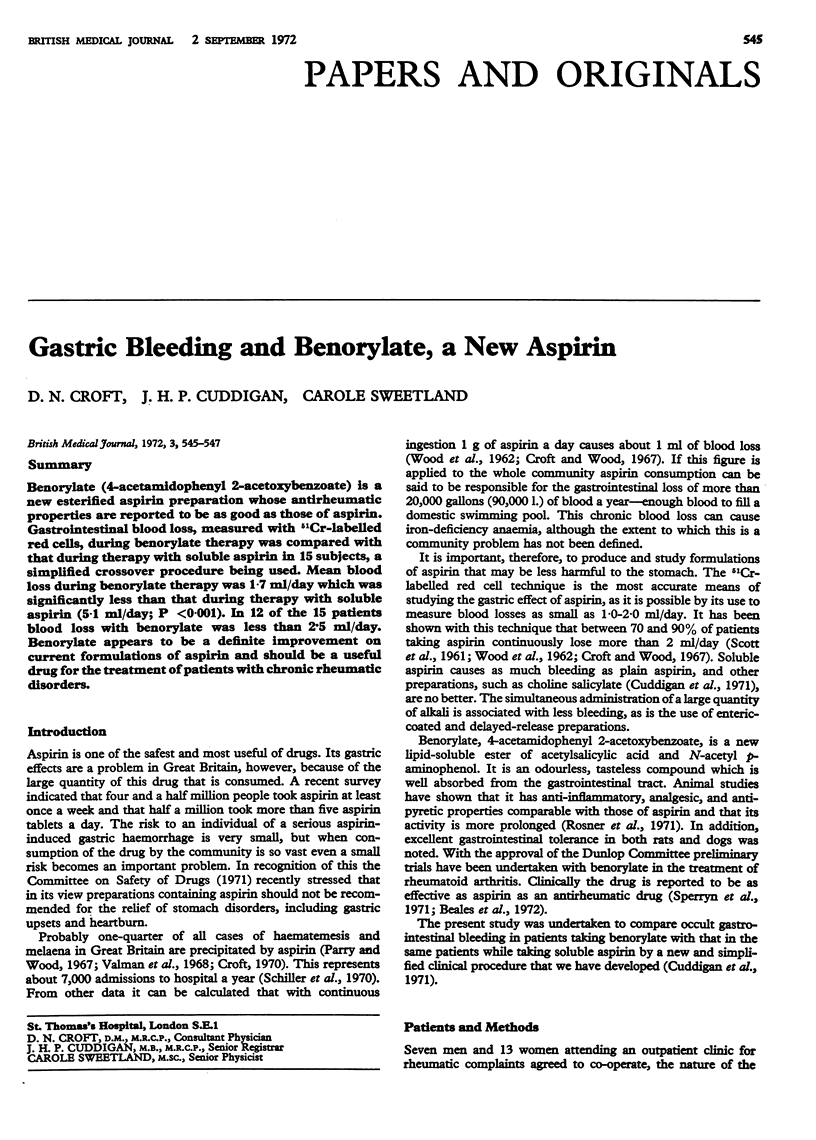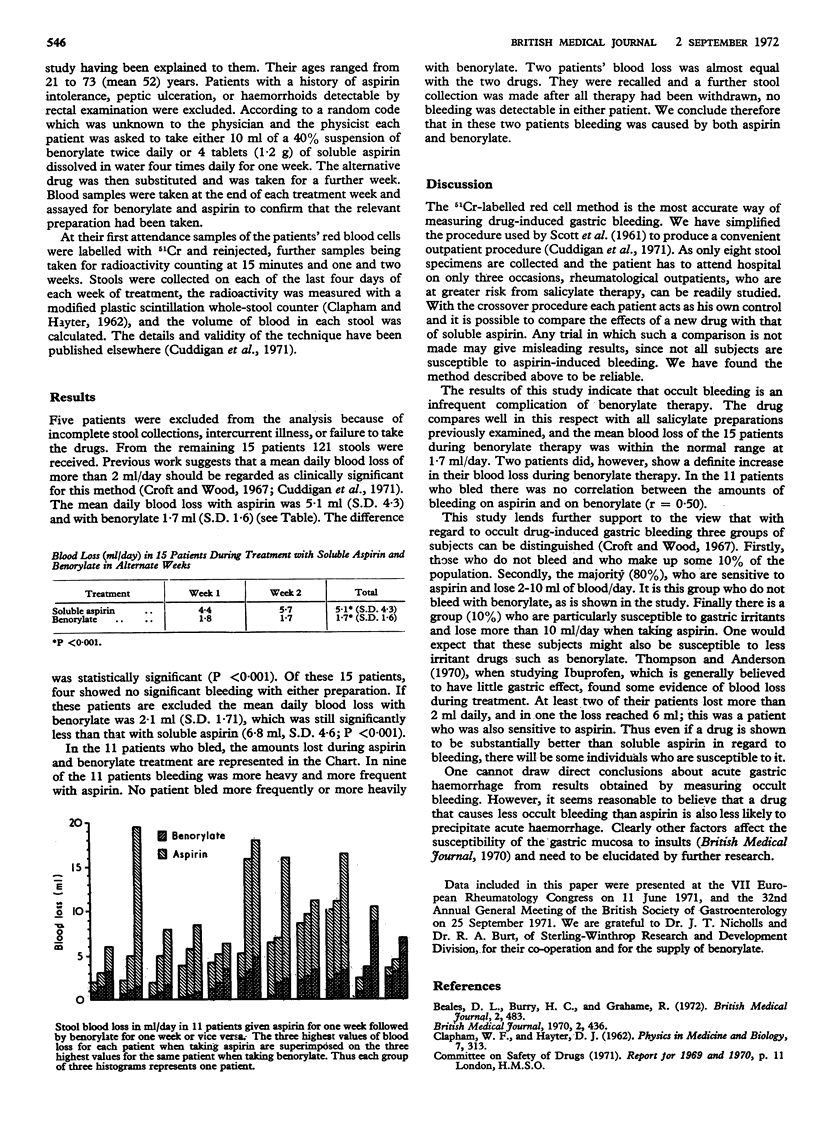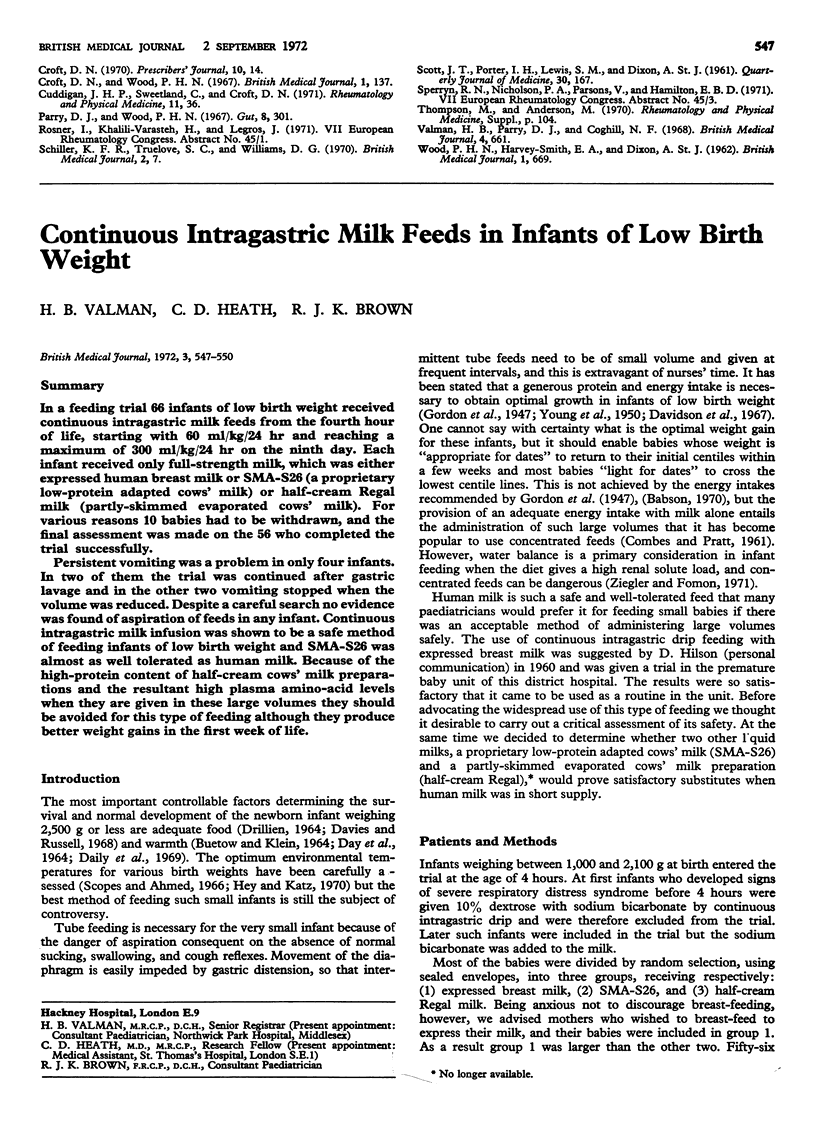Abstract
Benorylate (4-acetamidophenyl 2-acetoxybenzoate) is a new esterified aspirin preparation whose antirheumatic properties are reported to be as good as those of aspirin. Gastrointestinal blood loss, measured with 51Cr-labelled red cells, during benorylate therapy was compared with that during therapy with soluble aspirin in 15 subjects, a simplified crossover procedure being used. Mean blood loss during benorylate therapy was 1·7 ml/day which was significantly less than that during therapy with soluble aspirin (5·1 ml/day; P <0·001). In 12 of the 15 patients blood loss with benorylate was less than 2·5 ml/day. Benorylate appears to be a definite improvement on current formulations of aspirin and should be a useful drug for the treatment of patients with chronic rheumatic disorders.
Full text
PDF


Selected References
These references are in PubMed. This may not be the complete list of references from this article.
- Beales D. L., Burry H. C., Grahame R. Comparison of aspirin and benorylate in the treatment of rheumatoid arthritis. Br Med J. 1972 May 27;2(5812):483–485. doi: 10.1136/bmj.2.5812.483. [DOI] [PMC free article] [PubMed] [Google Scholar]
- CLAPHAM W. F., HAYTER C. J. The measurement of gammaemitting isotopes in faeces. Phys Med Biol. 1962 Dec;7:313–317. doi: 10.1088/0031-9155/7/3/303. [DOI] [PubMed] [Google Scholar]
- Croft D. N., Wood P. H. Gastric mucosa and susceptibility to occult gastrointestinal bleeding caused by aspirin. Br Med J. 1967 Jan 21;1(5533):137–141. doi: 10.1136/bmj.1.5533.137. [DOI] [PMC free article] [PubMed] [Google Scholar]
- Cuddigan J. H., Sweetland C., Croft D. N. Assessment of drug-induced occult bleeding. Rheumatol Phys Med. 1971 Feb;11(1):36–39. doi: 10.1093/rheumatology/11.1.36. [DOI] [PubMed] [Google Scholar]
- Parry D. J., Wood P. H. Relationship between aspirin taking and gastroduodenal haemorrhage. Gut. 1967 Jun;8(3):301–307. doi: 10.1136/gut.8.3.301. [DOI] [PMC free article] [PubMed] [Google Scholar]
- SCOTT J. T., PORTER I. H., LEWIS S. M., DIXON A. S. Studies of gastrointestinal bleeding caused by corticosteroids, salicylates, and other analgesics. Q J Med. 1961 Apr;30:167–188. [PubMed] [Google Scholar]
- Valman H. B., Parry D. J., Coghill N. F. Lesions associated with gastroduodenal haemorrhage, in relation to aspirin intake. Br Med J. 1968 Dec 14;4(5632):661–663. doi: 10.1136/bmj.4.5632.661. [DOI] [PMC free article] [PubMed] [Google Scholar]
- WOOD P. H., HARVEY-SMITH E. A., DIXON A. S. Salicylates and gastrointestinal bleeding. Acetylsalicylic acid and aspirin derivatives. Br Med J. 1962 Mar 10;1(5279):669–675. doi: 10.1136/bmj.1.5279.669. [DOI] [PMC free article] [PubMed] [Google Scholar]


